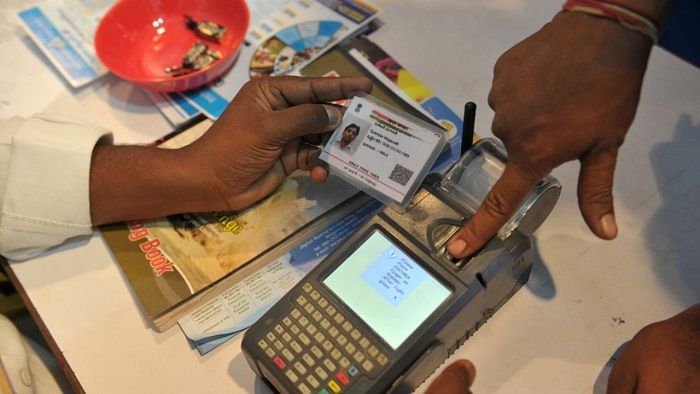
On March 17, 2021, the Supreme Court issued notice to the Centre on a plea alleging cancellation of around four crore ration cards in the country due to non-linking with Aadhaar cards, resulting in starvation deaths.
The plea was filed by Koili Devi, mother of an 11-year-old girl, who allegedly died due to starvation on September 28, 2017.
A bench presided over by Chief Justice S A Bobde said, "The matter is too serious. We have to hear it."
The court issued notice to the Centre seeking its response within four weeks in the petition pending since 2018. It also asked the Union government not to treat the matter as adversarial litigation.
In the National Election Study that the Lokniti-CSDS conducted after the 2019 Lok Sabha elections, the voters were asked, "Have you ever been denied these following things because you didn’t have your Aadhaar card/number or your biometrics didn’t match or because of some technical glitches or the server being down?" The options were: A. Foodgrains/ration that you were supposed to get, B. Any government scheme benefit that you were eligible.
Read: SC notice to Centre on plea against cancellation of ration cards causing alleged starvation deaths
On analysing the responses of those from ration-card-holding households, it turned out that 28 per cent households had indeed experienced such a situation. The survey was conducted on over 12,000 electors.
Since the introduction of the Aadhar-based biometric authentication, problems regarding people’s fingerprints not getting confirmed by the e-PoS device at the ration shop and poor internet connection have been reported, according to a report by Indian Express (IE).
As per the survey, the problem of denial of rations is faced by people in both urban and rural areas. It showed that 28 per cent of respondents belonging to ration card-holding households in rural areas were refused ration due to Aadhaar-related issues at some point, in urban areas it was 27 per cent. And it was the poorer sections who were hit the most with 39 per cent of households with a monthly income below Rs 2,000 said that they were at some point denied PDS ration due to Aadhaar problems.
Also read: Fears of Covid-19 vaccine exclusion as India uses Aadhaar-based facial recognition
This percentage of denial is higher in seven states: Bihar, Jharkhand, Madhya Pradesh, Chhattisgarh, Rajasthan, Uttar Pradesh and Uttarakhand.
The petition, based on which the Supreme Court issued the notice to the Centre, claimed insistence on Aadhaar and biometric authentification led to the cancellation of nearly four crore ration cards in the country as per the Union government.
"The Union government casually explains that these cancelled cards were bogus. The real reason is that the technological system based on Iris identification, thumbprints, possession of Aadhaar, functioning of the internet in rural and remote areas led to large scale cancellation of ration cards without notice to the family concerned," it said.
The problem is not just with foodgrains, but with coronavirus vaccination as well. As per rights groups and experts, millions of vulnerable people are at risk of missing out on Covid-19 vaccines as Aadhar card is used for registration and pilots facial recognition technology at inoculation centres.